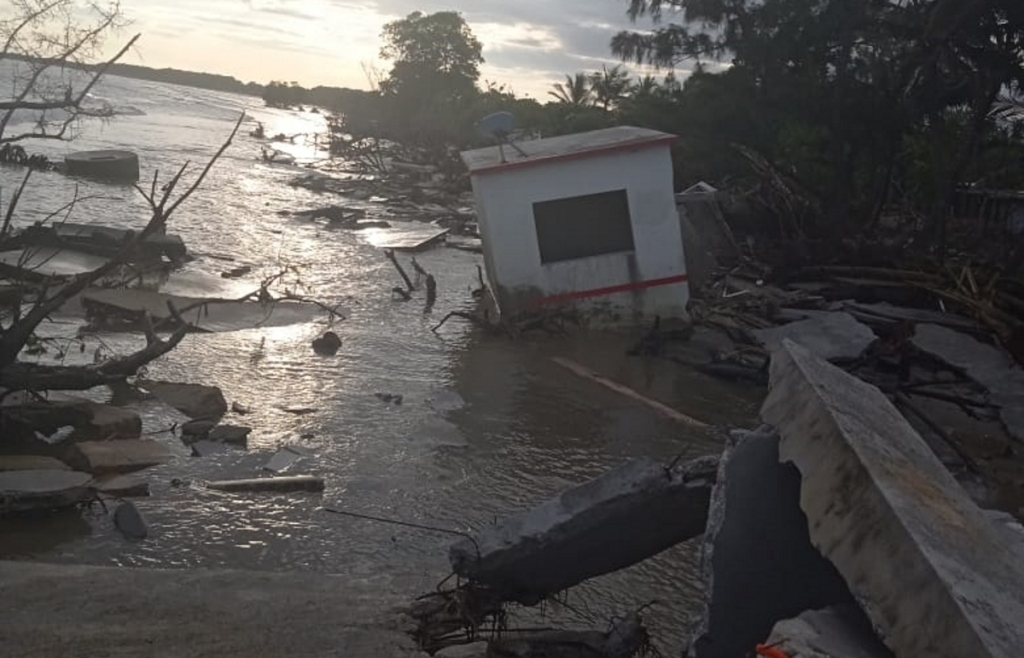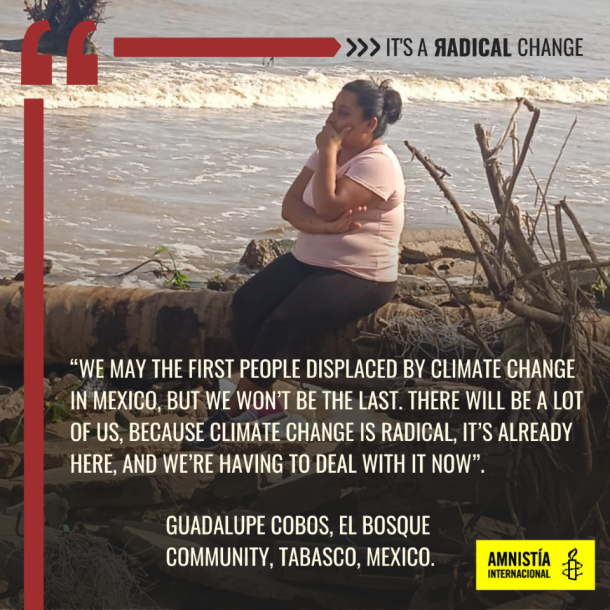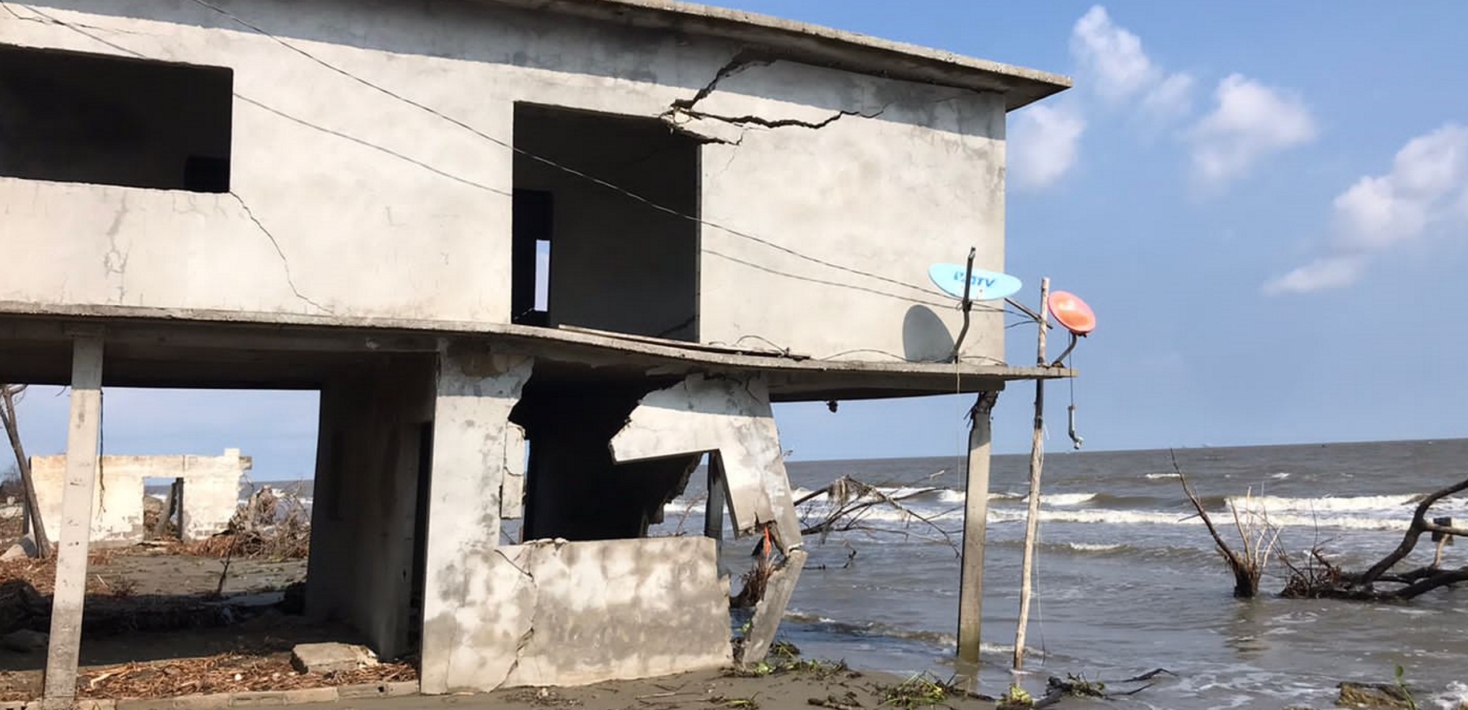By Guadalupe Cobos Pacheco
As a member of the El Bosque community in Tabasco, Mexico, I face an uncertain future. Rising sea levels caused by climate change have swept away more than 200 meters of coastline here, destroying more than 50 homes. Climate change represents a radical change for our community. Before experiencing this radical change we lived in harmony with the sea. In fact, we’ve always had a very special relationship with the sea, since we depend on it for work, food and our very lives.
Before climate change, our daily routine was to go fishing and sell our produce. Like any community, we celebrated our customs and traditions. We celebrated important dates such as Christmas, New Year or the Day of the Dead. We heard about climate change on television, but we never thought it would destroy our community. We could sleep easy.
Since 2019, our lives have completely changed. Now our lives revolve around climate change. That year, a storm swept away the first row of homes, and rising sea levels, coastal erosion, and northerly winds have continued to destroy our community. Our only option now is to leave.
Climate change is a radical change that affects our economy, our peace of mind, and our health, including our mental health
Guadalupe Cobos Pacheco
Our community is uninhabitable. We lack the most basic things, like drinking water (the community wells are full of salt water) or electricity (which is intermittent). Our children have nowhere to study, as a storm destroyed the local school in 2022. People who don’t have the resources to leave are vulnerable and live in temporary shelters that lack basic services.
In 2022 the civil society organizations Nuestro Futuro, Conexiones Climáticas and Greenpeace Mexico helped us to call on the Mexican authorities to relocate us. By 2022, the sea had already swept away most of our community’s homes and infrastructure. So, with support from these organizations, we held a press conference in El Bosque on 17 November 2022. We explained our situation and asked the municipal, state and federal governments for support.
Accompanied by representatives of these organizations, we went to Mexico City to meet officials at the Ministry of Land, Territory and Urban Development (SEDATU), who promised to help relocate us. They came to our community, conducted a census of the affected families and organized workshops and meetings. Unfortunately, there were only three meetings, the last of them in July this year, but since then we’ve heard nothing from them about relocating us.

The government is slow to act but the sea won’t wait. We’re already running out of time because the cold front season is upon us. We were able to wait when the sea wasn’t so close – in the season of northerly winds, all we used to do was to watch television, drink coffee or hot chocolate, and wait for them to end so we could get back out to sea. But now, our lives are in danger all the time, every day, every week. We have to be vigilant while the north winds blow. A cold front that used to last three days can now last a week and even a month since climate change started.
Climate change is a radical change that affects our economy, our peace of mind, and our health, including our mental health. Not knowing what will happen makes us anxious. People leave every day. It’s forced migration. It’s not because we want to leave, it’s because the sea is getting nearer and nearer. It’s submerging us and flooding our homes.

We would like the government to act more quickly and efficiently to relocate us. We want the authorities to tell us how and when they will do it. While we’re being relocated, we’ll need the authorities to help us with basic needs, like electricity, water and a mobile school.
We would also like to ask for help from the international community, from leaders of other countries. We need people to know about our situation and for everyone who can to help us. We may the first people displaced by climate change in Mexico, but we won’t be the last. There will be a lot of us, because climate change is intense, it’s already here, and we’re having to deal with it now. We are suffering a lot. We’re not used to seeing our people suffer so much. Even though we’re not responsible for causing climate change, we’re paying the price.
Banner Image: Comunidad del Bosque, Tabasco






















